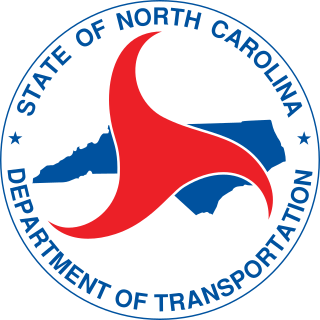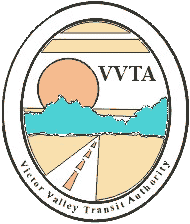Related Research Articles

The Research Triangle Regional Public Transportation Authority, known as GoTriangle, provides regional bus service to the Research Triangle region of North Carolina in Wake, Durham, and Orange counties. The GoTriangle name was adopted in 2015 as part of the consolidated GoTransit branding scheme for the Triangle. In 2023, the system had a ridership of 1,735,700, or about 6,300 per weekday as of the fourth quarter of 2023.

U.S. Route 401 (US 401) is a north–south United States highway, a spur of U.S. Route 1, that travels along the Fall Line from Sumter, South Carolina to Interstate 85 near Wise, North Carolina.

A Metropolitan Planning Organization (MPO) is a federally mandated and federally funded transportation policy-making organization in the United States that is made up of representatives from local government and governmental transportation authorities. They were created to ensure regional cooperation in transportation planning. MPOs were introduced by the Federal-Aid Highway Act of 1962, which required the formation of an MPO for any urbanized area (UZA) with a population greater than 50,000. Federal funding for transportation projects and programs are channeled through this planning process. Congress created MPOs in order to ensure that existing and future expenditures of governmental funds for transportation projects and programs are based on a continuing, cooperative, and comprehensive ("3-C") planning process. Statewide and metropolitan transportation planning processes are governed by federal law. Transparency through public access to participation in the planning process and electronic publication of plans now is required by federal law. As of 2015, there are 408 MPOs in the United States.
The Metropolitan Transportation Commission (MTC) is the government agency responsible for regional transportation planning and financing in the San Francisco Bay Area. It was created in 1970 by the State of California, with support from the Bay Area Council, to coordinate transportation services in the Bay Area's nine counties: Alameda, Contra Costa, Marin, Napa, San Francisco, San Mateo, Santa Clara, Solano, and Sonoma. The MTC is fourth most populous metropolitan planning organization in the United States.
Metroplan Orlando is the metropolitan planning organization (MPO) for Greater Orlando, Florida, which consists of Orange, Osceola and Seminole Counties. As the regional MPO, Metroplan Orlando provides a forum for multi-modal transportation planning and inter-governmental partnership.

The North Carolina Department of Transportation (NCDOT) is responsible for building, repairing, and operating highways, bridges, and other modes of transportation, including ferries in the U.S. state of North Carolina.
The Lexington Area Metropolitan Planning Organization (MPO) has been involved with transportation planning in Lexington, Kentucky, USA, and its immediate area since being established in 1974. It is responsible, in cooperation with the Kentucky Transportation Cabinet, for planning and coordinating all aspects of transportation planning on behalf of local governments within its region, which includes the Lexington-Fayette Urban County Government and Jessamine County.

Interstate 40 (I-40) is a part of the Interstate Highway System that travels 2,556.61 miles (4,114.46 km) from Barstow, California, to Wilmington, North Carolina. In North Carolina, I-40 travels 420.21 miles (676.26 km) across the entirety of the state from the Tennessee state line along the Pigeon River Gorge to U.S. Highway 117 (US 117) and North Carolina Highway 132 (NC 132) in Wilmington. I-40 is the longest Interstate Highway in North Carolina and is the only Interstate to completely span the state from west to east.
The Massachusetts Department of Transportation (MassDOT) oversees roads, public transit, aeronautics, and transportation licensing and registration in the US state of Massachusetts. It was created on November 1, 2009, by the 186th Session of the Massachusetts General Court upon enactment of the 2009 Transportation Reform Act.
The Capital Area Metropolitan Planning Organization (CAMPO) is the federally mandated metropolitan planning organization (MPO) responsible for comprehensive transportation planning in the Austin, Texas, USA area, including Williamson, Travis, Hays, Bastrop, Burnet and Caldwell counties. CAMPO is one of 25 Texas MPOs.

U.S. Route 70 (US 70) is a part of the United States Numbered Highway System that runs from Globe, Arizona, to the Crystal Coast of the US state of North Carolina. In North Carolina, it is a major 488-mile-long (785 km) east–west highway that runs from the Tennessee border to the Atlantic Ocean. From the Tennessee state line near Paint Rock to Asheville it follows the historic Dixie Highway, running concurrently with US 25. The highway connects several major cities including Asheville, High Point, Greensboro, Durham, Raleigh, Goldsboro, and New Bern. From Beaufort on east, US 70 shares part of the Outer Banks Scenic Byway, a National Scenic Byway, before ending in the community of Atlantic, located along Core Sound.
The Chicago Metropolitan Agency for Planning (CMAP) is a metropolitan planning organization (MPO) responsible for comprehensive regional transportation planning in Cook, DuPage, Kane, Kendall, Lake, McHenry and Will counties in northeastern Illinois. The agency developed and now guides implementation of ON TO 2050, a new long-range plan to help the seven counties and 284 communities of northeastern Illinois implement strategies that address transportation, housing, economic development, open space, the environment, and other quality-of-life issues.
The Puget Sound Regional Council (PSRC) is a metropolitan planning organization that develops policies and makes decisions about transportation planning, economic development, and growth management throughout the four-county Seattle metropolitan area surrounding Puget Sound. It is a forum for cities, towns, counties, transit agencies, port districts, Native American tribes, and state agencies to address regional issues.

U.S. Highway 1 (US 1) is a north–south United States Numbered Highway which runs along the East Coast of the U.S. between Key West, Florida, and the Canada–United States border near Fort Kent, Maine. In North Carolina, US 1 runs for 174.1 miles (280.2 km) across the central region of the state. The highway enters North Carolina from South Carolina, southwest of Rockingham. US 1 runs northeast, passing through or closely bypassing Southern Pines and Sanford in the Sandhills region. It next passes through Cary, the state capital of Raleigh, and Wake Forest. The highway continues north to Henderson, before leaving the state at the Virginia state line, near Wise. The route is mostly a multilane divided arterial road, with several freeway segments. It serves as a strategic highway, connecting the North Carolina Sandhills and Research Triangle regions northward to the Southside region.

The Tampa Bay Area Regional Transit Authority, or TBARTA, is a regional transportation agency of the U.S. state of Florida which was created on July 1, 2007. The purpose of the agency is "to plan, develop, finance, construct, own, purchase, operate, maintain, relocate, equip, repair, and manage multimodal systems in Hernando, Hillsborough, Manatee, Pasco, and Pinellas Counties." The agency coordinates its efforts with the Florida Department of Transportation to improve transportation in the Tampa Bay Area.
The New York Metropolitan Transportation Council (NYMTC) is the metropolitan planning organization for New York City, Long Island, and the lower Hudson Valley. It is a federally mandated planning forum to allow the ten counties it represents to coordinate the use of federal transportation funds. NYMTC was created in 1982 after the disbanding of the Tri-State Regional Planning Commission, a metropolitan planning organization for the states of New York, New Jersey, and Connecticut. Unlike most other Metropolitan Planning Organizations (MPOs) in the United States, NYMTC's staff are all employees of the New York State Department of Transportation.

Victor Valley Transit Authority (VVTA), the second largest transit operator in San Bernardino County, is a transit agency providing bus service in the Victor Valley, California area. In 2023, the system had a ridership of 1,476,600.
The North Jersey Transportation Planning Authority (NJTPA) is the federally authorized metropolitan planning organization (MPO) for the 13-county northern New Jersey region, one of three MPOs in the state. NJTPA's annual budget is more than $2 billion for transportation improvement projects. The Authority also participates in inter-agency cooperation and receives public input into funding decisions. The NJTPA sponsors and conducts studies, assists county planning agencies and monitors compliance with national air quality goals. The Authority provides federal funding to support the planning work of its 15 subregions. The funds are matched by a local contribution. As vital partners in regional planning work, the subregions help bring a local perspective to all aspects of NJTPA's work to improve the northern New Jersey transportation network.

Interstate 87 (I-87) is a partially completed Interstate Highway in the US state of North Carolina, the shortest designated primary Interstate Highway at 12.90 miles (20.76 km). The completed portion is in eastern Wake County, between Raleigh and Wendell; the majority of the completed route is known as the Knightdale Bypass, while the remaining three miles (4.8 km) follows the Raleigh Beltline (I-440). It is planned to continue northeast through Rocky Mount, Williamston, and Elizabeth City, ending in Norfolk, Virginia. It is signed as north–south, in keeping with the sign convention for most odd-numbered interstates, but the route goes primarily east–west, with the eastern direction aligning to the north designation. The entire route is concurrent with US Highway 64 (US 64), with portions also concurrent with I-440 and US 264.

Terry L. Bellamy served as the director of public works and transportation for Prince George's County, Maryland from December 2018 until September 2021. Prior to his current position, he served as director of transportation for the City of Durham, North Carolina and Assistant Director for Transportation Planning for the City of San Antonio.
References
- ↑ "About - NC Capital Area Metropolitan Planning Organization".
- ↑ "Staff-CAMPO" . Retrieved 2023-02-08.